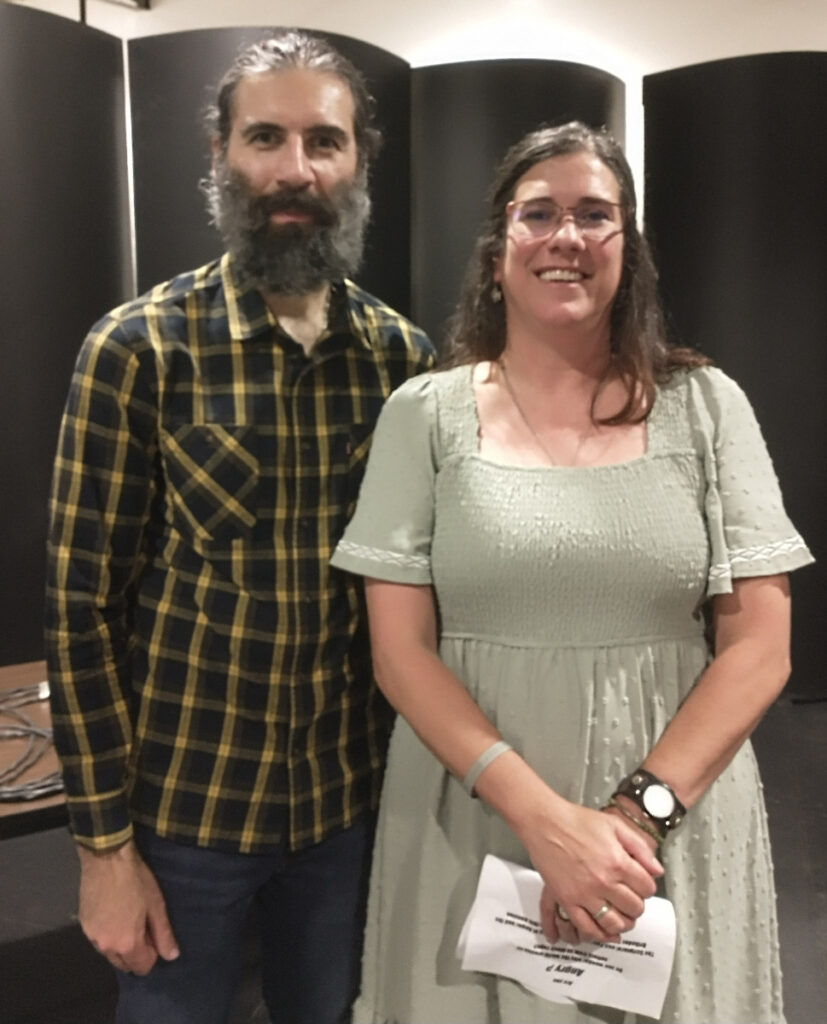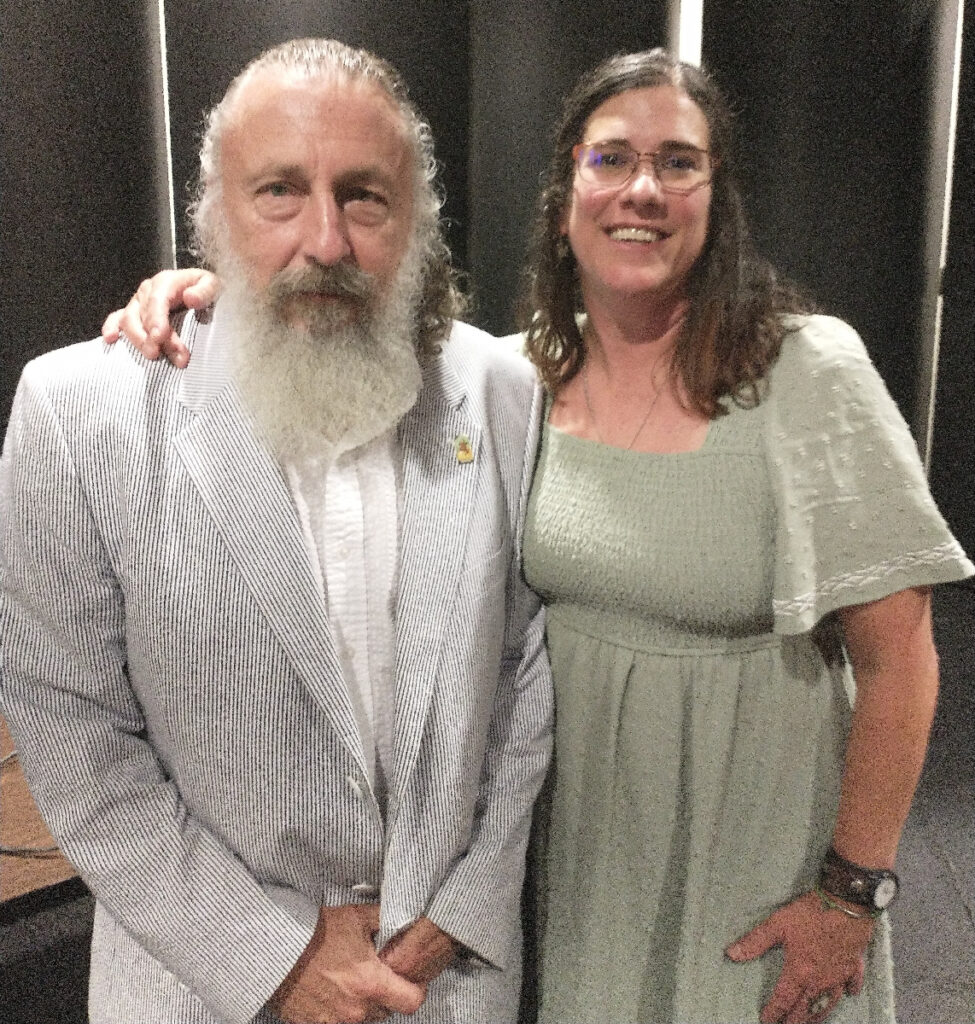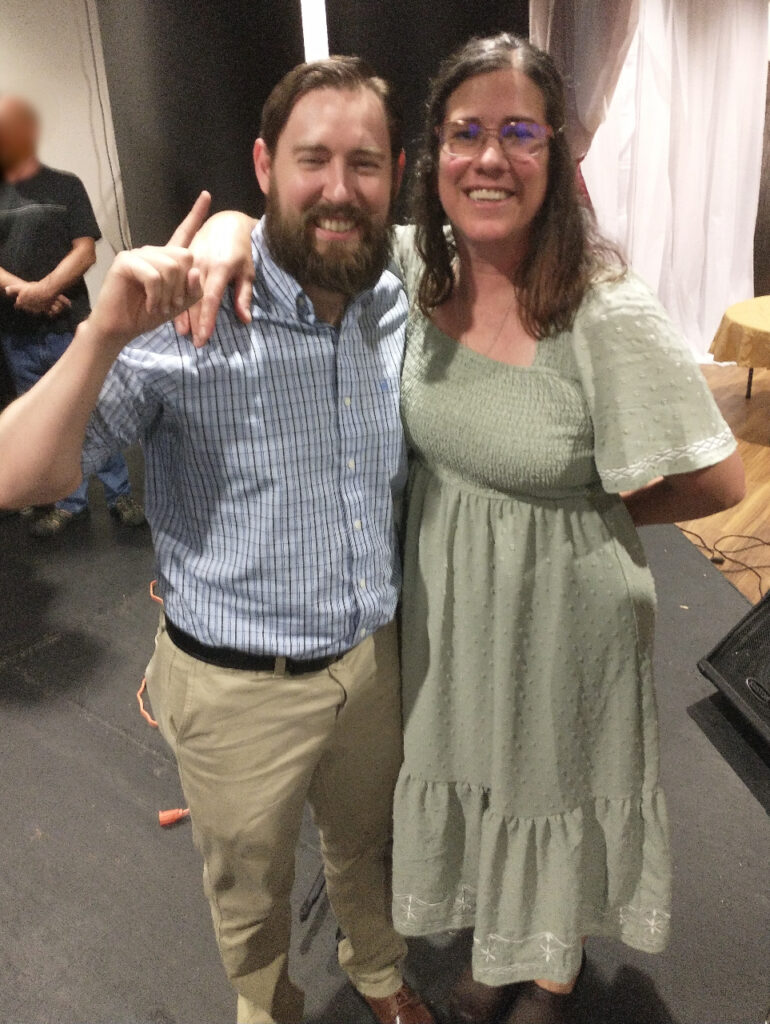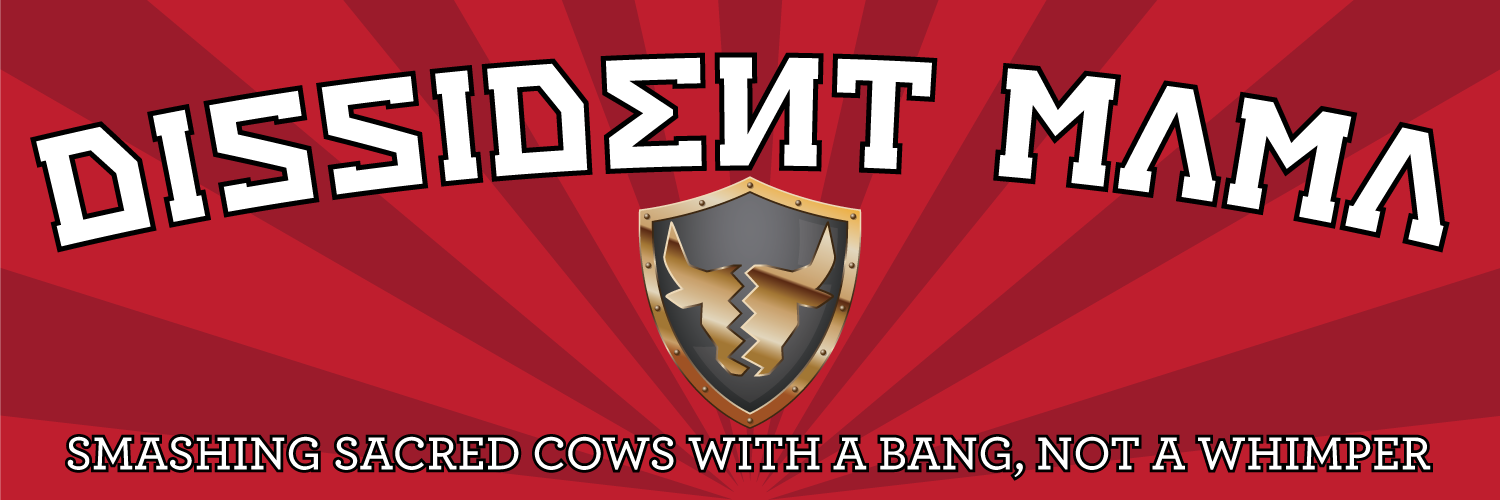




In mid-September more than 100 people gathered in a beautiful small town in northeastern West Virginia for the 2nd Annual Trad Forum. Hosted by my pal and compatriot Michael Sisco, it was a “safe space” of like-minded folks from around the region and a few beyond that gathered to discuss “traditional wisdom for modern trials.”
Above (clockwise from bottom right) are yours truly with Sisco, Jim Jatras, Roosh V, Dr. E. Michael Jones, and Ashley Rae Goldenberg, all of whom were fellow speakers, except for Goldenberg, who I consider a friend and was happy to finally meet in-person. Other speakers not pictured included Metropolitan Jonah Paffhausen and Kai Clips.
“Tradition is how we contend”
By Rebecca Dillingham a.k.a. Dissident Mama
September 17, 2022
Romney, WV
Tradition is the opposite of permanent revolution. But in modern times, it’s the most revolutionary act we can do.
G.K. Chesteron said that tradition means: “giving a vote to that most obscure of all classes, our ancestors. It is the democracy of the dead … [because it] refuses to submit to the small and arrogant oligarchy of those who merely happen to be walking about.”
The sociologist Robert Nisbet explained that: “A sense of the past is far more basic to the maintenance of freedom than hope for the future. The former is concrete and real; the latter is necessarily amorphous and more easily guided by those who can manipulate human actions and beliefs.”
And the Apostle Jude exhorted to his fellow Christians: “that ye should earnestly contend for the faith which was once delivered unto the saints.”
I began my blog in December 2016 and started a podcast in April 2020 with the expectation that I was indeed contending. My aim from the beginning was to fight rhetorically for the merits of both biblical and Southern tradition, which I see as perfectly compatible, and to be a voice for my three straight, white, gun-owning, homeschooled, Dixie-proud, conservative Christian sons.
A journalist by trade and a wife with the blessing of an extremely supportive and encouraging husband, I considered it my calling to smash the sacred cows of puritanical-progressivism, or at the very least thought I’d be filling a politically incorrect niche that was at that time untapped.
Then I found myself in the strange position that many other traditionalist women land these days: I can voice my beliefs in the modern public square only because my husband’s the breadwinner who’s having to carefully navigate around the potholes of woke corporatism in order to feed and clothe our family, and to nurture and educate our children.
Sure I’ve had a dox, a hack, and a few stalkers, but the paradox of woman-led pro-patriarchal and traditional content-creation never escaped me. But as long as I was doing it for my family and my ancestors, both familial and spiritual, I saw no problem with it.
And on its face, there is nothing wrong with it. The Bible is filled with women who hold fast to truth and do so quite publicly in spite of the risks when they are given the opportunity. The lives of the saints mirror this faith and bravery among the “gentler sex,” as does real Southern history which contradicts the tedious but totalitarian propaganda pushed by our institutions.
But what I found is that despite my best intentions, I was spending so much time writing and talking about the value of the traditionalist perspective (and by contrast too, the error and inherent evil of progressivism) that I was often remiss in living it out in my own life. Was I really contending?
Or was I being a Pharisee by falling prey to what St. Paul called the traditions of men? Was I so distracted in the chatter that I was missing the mark in the doing – in modeling the traditional lived experience not only in my home, but to a world writhing in the death throes of degeneracy, despair, and deception.
I’m still not sure. And maybe the answer isn’t even a mutually exclusive “either/or” and is more a matter of balance.
But what I am sure of is that I don’t have to invent the answer myself. It is tradition that will illumine truths and provide a source from which I can draw both wisdom and strength.
So what is tradition? The etymology of our English word “tradition” comes from the Latin “traditio” (trah-DEE-teo), translated literally as “something handed over, delivered,” and parallels the Greek “paradosis,” which means “what is transmitted.” This is a vital point since paradosis, not traditio, is the word and its various forms found all throughout the New Testament, especially in the writings of the Apostle Paul.
All traditions are embedded with the implication that the “passed down” custom or belief will remain intact and unmodified. After all, the biblical concept “eternal” itself means “unchanging.” As St. Paul told the Corinthians: “Remember me in all things and hold fast to the traditions, just as I delivered them to you.”
Tradition is not a proposition or a principle, for those concepts entail the trappings of ideology, which is the motive force of the nihilism that besets our poisonous postmodern world. Rather, tradition is a building block, without faddism and without change, a lens through which we can interpret and learn, and a spring that gives meaning to life. It’s a source of identity, and an essential element of nationhood, people groups, and culture.
Tradition also provides a bulwark against presentism, a social and spiritual malady that strickens too many people with an inability to reflect honestly on the past or on themselves, while simultaneously imbibing in them a penchant for “reducing the drama of human experience to abstract, supposedly universal theory,” as Clyde Wilson, the preeminent Southern historian explains.
Presentism is a person’s religious-like belief that he’s so moral, pious, and altruistic in the here-and-now that he lacks the humility necessary to try to find out who he is, where he came from, what he can learn, and why things are as they are. In other words, pride.
And why should he even bother himself such with such nostalgic notions? After all, his is a society of enlightenment, science, and rationalism, and he himself the product of grand evolutionary theory.
Our presentist betters view traditionalists as backwards, superstitious relics to be reconstructed or shed altogether. Can’t have those knuckle-draggers mussing up all that inglorious forward-thinking.
Loathsome treatment of traditionalists is common even within Christianity. Some clergy use the ad hominem “toxic trads” to besmirch us, while some brethren refer to us as “petty” and “self-absorbed,” “unpleasant little bigots with poor social skills.” They say we’re “basement dwellers” who use traditionalism as a “pretext for our hatred of women, gays, and non-Europeans,” and that traditionalism is just a “cover for extremism.”
Well, no one ever said being a traditionalist was going to be easy. In fact, it’s often only maintained through hardfought action. The poet and Southern Agrarian Donald Davidson concurred, writing that the “folk-chain of memory … is as old in time as the memories that it expresses,” but it “can only endure as long as the land and people that accept it.”
Another 20th century poet and anti-progressive TS Eliot agreed, saying that “Tradition … cannot be inherited.” Rather, “you must obtain it by great labor.”
After all, we probably wouldn’t be so conscious of tradition’s vital import if we weren’t living through this mass-globalist democratic age so hellbent on “wrecking,” as Aleksandr Solzenhitsyn called the Soviet predilection for destroying anything the sinister system considered as competition. Of course, it’s the wreckers themselves who say we traditionalists are doing the wrecking by simply existing and not buying into their paradigm. Gaslighting: now there’s a leftist tradition you can count on.
Although it often seems that the innovationists are just swinging their “social justice” sledgehammers around willy nilly, smashing anything true, good, and beautiful that happens to stand in their way, and though they do relish in death by a thousand cuts, they do also have a few specific goals: to annihiliate what they call the “patriarchal idolatry of Christianity,” to “reimagine” the Christian faith along the lines of feminist theology, homosexual and transexual worship, and other godless spiritism, and to move society “beyond the bounds of Christianity.”
The presentists know fully well that if they can demolish the “little church” of the home, our entire civilization structure will crumble, as it has already begun to do, paving the way for one-world religion and the antichrist. Turns out, clown world ain’t all that funny, y’all.
The great Southern writer William Faulkner once remarked, “They call it progress, but they don’t say where it is going.”
But we traditionalists know. The presentists want our marriages to fail; they want our children; and the arrogant oligarchy wants us atomized and alone, writhing in a gulag of the mind, body, and soul. So we must sturdy our home – both the individual as the home of the indwelling soul, and the household as the indwelling of family and community.
King Solomon begins Proverbs 14 with the words: “Every wise woman buildeth her house: but the foolish plucketh it down with her hands.” St. Paul said to “Promote good order” and St. John Chrystostom saw the family as “a living cell of the Church [and] the prophetic image of the Kingdom.”
Here I was a Dissident Mama blogger, writing about the importance of truth and tradition, family and localism, homeschooling and hierarchy and order while my own home was becoming increasingly disordered and unbalanced. I try to lead an Orthodox life, but I was wondering: do I really take heed of the words “Wisdom. Let us attend!” which are proclaimed at every Divine Liturgy.
Was I really comprehending it all? As Solomon’s proverb states, “Wisdom abides in the mind of a man of understanding, but it is not known in the heart of fools.” Perhaps I was being a hard-hearted fool.
So I’ve been ruminating on the “ecclesia domestica” writings of St. Paul through the homilies of St. John Chrysostom. Here’s some of his relevant advice:
• “For indeed a house is a little Church. Therefore, it is possible for us to surpass all others in virtue by becoming good husbands and wives.”
• “When husband and wife are joined together in marriage, they form an image not of something earthly, but of God himself.”
• “A household cannot be a democracy ruled by everyone.”
• “When husband and wife are at odds with one another, their household is in no better shape than a storm-tossed ship in which the captain and the pilot disagree.”
• “The female sex is rather weak and needs a lot of support, a lot of condescension … but nevertheless she possesses real authority and equality of dignity while the husband still retains the role of headship; the welfare of the household is thus maintained.”
• “When the concerns of everyone in the house are the same, harmony reigns in the family, but if not, the entire household is easily broken up and destroyed.”
• “‘My own’ … is a cursed and abominable phrase [and] comes from the devil.”
• “We are so concerned with our children’s schooling; if only we were equally zealous in bringing them up in the discipline and instruction of the Lord. And then we wonder why we reap such bitter fruit when we have raised our children to be insolent, licentious, impious, and vulgar … let us give them a pattern to imitate.”
• “When we teach our children to be good … [and] to regard this present age as nothing, we instill virtue in their souls and reveal the image of God within them.”
• “When an archer desires to shoot his arrows successfully, he first takes great pains over his posture and aligns himself accurately with his mark. It should be the same for you who are about to shoot the head of the wicked devil. Let us be concerned first for the good order of sensations and then for the good posture of inner thoughts.”
Sure, on its face, St. John’s practical wisdom seems pretty basic, and perhaps it is. After all, such sage instruction is what the traditional family unit was built upon for millennia. It was “handed down” throughout the ages: because it works.
But as any husband, wife, parent, or child can attest, it sure ain’t easy. Since the fall corrupted human nature, men and women, and although complementarian at best, they are also in a perpetual to and fro, always giving rise to tension and conflict.
And don’t think that the people of St. John’s era weren’t faced with the same types of trials as us modern folk. In fact, St. John was shepherding a minority of people living in a society adamantly pagan and brimming with false Christian practices and heresy. Sound familiar?
St. John was twice banished by a queen of the Roman Empire due to his purposeful and often polemic sermons. Not only was the empress an adherent to a subversive religious sect, but she probably didn’t think too much of St. John’s teaching that women don’t have the ability to manage outside businesses or public affairs. Yep, “toxic masculinity” could get you canceled even some 1600 years ago.
So why did St. John, whose name Chrysostom means Golden Mouth, spend so much time preaching on the home and family life? Why did this man (who’s considered one of the three Holy Hierarchs of Orthodox Christianity due to his leadership in guiding the Church in such tumultuous times) fight not only against heresy but for harmony in the home?
Well, St. John knew that if we’re too distracted, frenetic, and overwhelmed by modernity, we’re destined to become the slaves of men. He knew that that devil delights when chaos reigns in our homes and in our families. And he knew that if you can’t sweep your own porch, as the Southern saying goes, how can you properly be the salt in preserving traditions at all and be the light in this dark world.
And wouldn’t you know, St. John’s mother, Anthousa, is herself a saint because of her devotion to raising her son in the faith. Such is the flowering effect of a well-ordered home, so let’s tend to our own gardens.
St. Paul proclaimed, “The time is short,” so now’s the time to cultivate tradition in ourselves, in our marriages, our parenting, and all throughout our homes. Let’s imitate the holy men and women of old and create a balanced life despite the unhinged masses. Harmony despite the discord. And self-denial despite the selfishness.
Secede in your mind, say the Southern nationalists, and they’re partially correct because it’s that kind of resistance to conformity that is necessary to start breaking our chains in this temporal world.
However, we must also secede from the darkness within our hearts by realigning ourselves with the eternal wisdom of Christ. As St. Seraphim of Sarov plainly stated, “Acquire the Spirit of Peace, and a thousand souls around you will be saved.” Now wouldn’t that be revolutionary? Yep, and that’s precisely how we contend.






Comments
Preach it, sister! AAAAA-MEN!!!
Author
Thanks, DD! Hope you are well. 🙂
Thank you very much for writing this. This is the perspective that we need as people like us will remain political, social, and religious minorities in this country.
Author
I appreciate your supportive comment, Gabe. Thank YOU for reading and may God bless you and yours!
This is Val, contact me. Apparently, I don’t have Zoom, so we cannot “meet” on that platform. Thought I did, but I do not.
Author
So glad we figured it out and talked. Woohoo … podcast to be released soon!!
Pingback: Tradition Is How We Contend